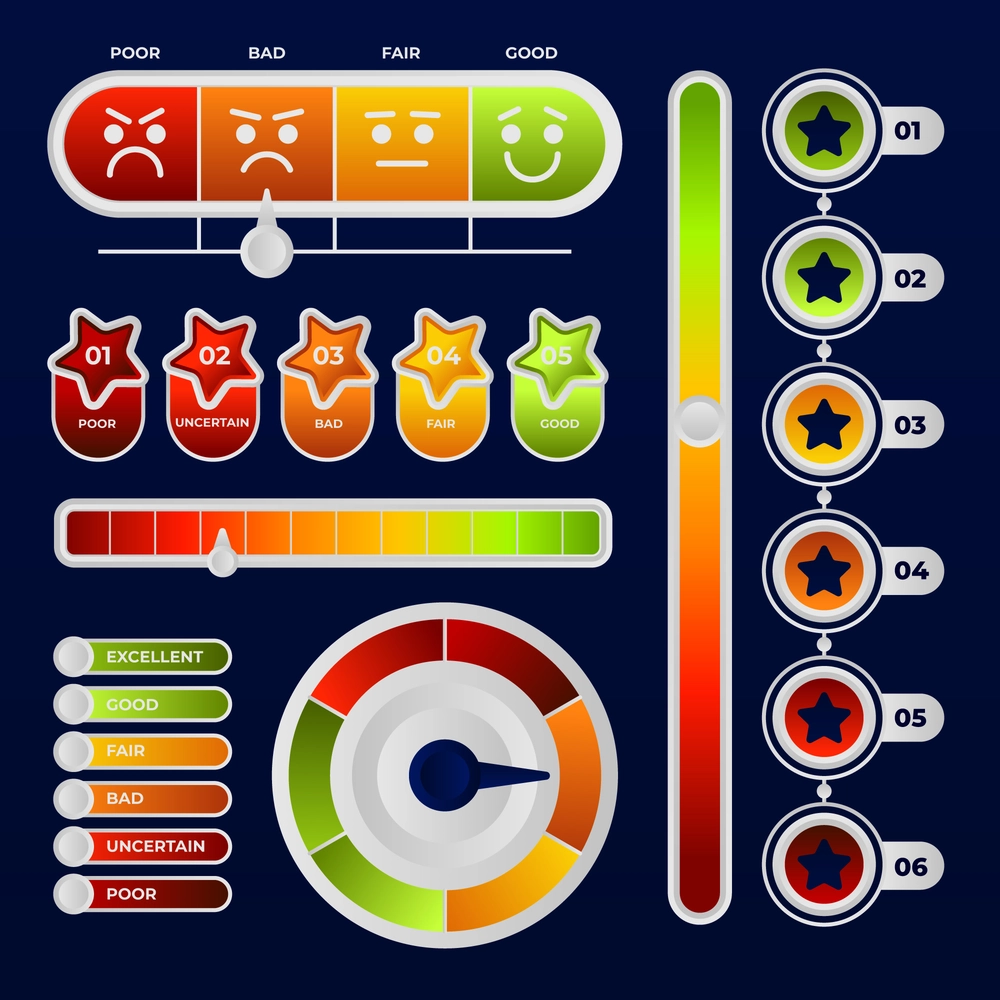The Impact of Nutrition on Energy Levels is a multifaceted topic that has implications for everyone, from athletes to office workers. It encompasses the understanding of how different nutrients, such as carbohydrates, proteins, and fats, contribute to the body’s energy production. The importance of nutrition in maintaining energy levels cannot be overstated, as it directly affects our ability to perform daily tasks, concentrate, and stay healthy. In the following sections, we will delve into the specific nutrients that play a role in energy production, the timing of meals, and practical tips for optimizing energy levels through proper nutrition.
Understanding the role of nutrition in energy production begins with recognizing the primary sources of energy in our diet. Carbohydrates are often considered the body’s main fuel, providing quick energy, while proteins and fats offer sustained energy release. The balance of these nutrients is essential for maintaining optimal energy levels throughout the day. Moreover, micronutrients like vitamins and minerals play a supporting role, aiding in the conversion of food into usable energy.
The importance of nutrition in maintaining energy levels extends beyond merely choosing the right types of food. The timing of meals, portion sizes, and hydration levels also play a crucial role in how we feel throughout the day. Regular, well-balanced meals prevent energy crashes and promote steady energy release. Additionally, staying hydrated is vital, as even slight dehydration can lead to fatigue. By paying attention to these factors, individuals can create a personalized nutrition plan that supports their unique energy needs and lifestyle.
Understanding Nutrition

Nutrition refers to the process by which organisms take in and utilize food substances, essential for growth, maintenance, and repair. It is a science that examines how the body uses nutrients and how a person’s dietary choices can affect their overall health and energy levels.
In the context of nutrition, macronutrients and micronutrients play distinct yet complementary roles. Macronutrients, including carbohydrates, proteins, and fats, are the primary energy providers, each serving unique functions in the body. Carbohydrates act as a quick energy source, proteins support growth and repair, and fats provide long-lasting energy. Micronutrients, such as vitamins and minerals, although required in smaller quantities, are equally vital. They assist in various biochemical processes, including the conversion of macronutrients into usable energy.
The concept of a balanced diet is central to understanding the impact of nutrition on energy levels. A balanced diet ensures that an individual receives the right proportions of macronutrients and micronutrients, tailored to their specific needs and lifestyle. It emphasizes variety, moderation, and the inclusion of nutrient-dense foods from all food groups. By adhering to a balanced diet, individuals can optimize their energy levels, support overall well-being, and reduce the risk of nutritional deficiencies and related health issues.
Understanding Energy Levels

In the context of human health, energy refers to the capacity to do work and perform physical and mental activities. It is the vitality that fuels our daily functions, from simple movements like walking to complex cognitive tasks like problem-solving. Energy is derived from the food we consume, and it is measured in calories, with different nutrients providing varying amounts of energy. The efficient conversion of these nutrients into usable energy is essential for maintaining optimal health and well-being.
Several factors influence energy levels, including nutrition, sleep, physical activity, stress, and underlying health conditions. A balanced diet provides the necessary fuel, while adequate sleep allows the body to recover and regenerate. Regular physical activity can boost energy levels, whereas chronic stress or illness may lead to fatigue. Even hydration plays a role, as dehydration can cause a noticeable drop in energy. Understanding these factors and how they interact can help individuals tailor their lifestyle to maintain consistent energy levels throughout the day.
Low energy levels can have a profound impact on daily life, affecting both physical and mental performance. Fatigue can lead to decreased productivity, difficulty in concentrating, and a reduced ability to engage in social and recreational activities. In more severe cases, chronic low energy may signal underlying health issues and can contribute to a diminished quality of life. Addressing the factors that influence energy levels, such as diet, sleep, and exercise, is essential for anyone seeking to optimize their daily performance and overall well-being.
The Direct Impact of Nutrition on Energy Levels

The direct impact of nutrition on energy levels is a complex and vital aspect of human health. Different nutrients contribute to energy production in unique ways, acting as building blocks and catalysts in various metabolic processes. For instance, carbohydrates are broken down into glucose, which is a primary energy source for the body, while proteins and fats are metabolized more slowly, providing sustained energy.
Carbohydrates, proteins, and fats each play specific roles in determining energy levels. Carbohydrates, especially complex ones, provide quick energy and are essential for brain function. Proteins, on the other hand, are vital for muscle repair and growth, and fats, particularly healthy fats, are necessary for long-term energy storage. The balance between these macronutrients is key to maintaining steady energy levels throughout the day.
Vitamins and minerals, though required in smaller quantities, are equally crucial for energy production. Vitamins like B-complex assist in the conversion of food into energy, while minerals like iron are involved in oxygen transport, which is essential for energy production. A deficiency in these micronutrients can lead to fatigue and reduced performance, highlighting the importance of a well-rounded diet that includes a variety of nutrient-dense foods.
Real-life examples and case studies further illustrate the direct impact of nutrition on energy levels. Athletes, for instance, rely on a carefully planned diet to ensure peak performance, focusing on the right balance of carbohydrates, proteins, and fats. Similarly, individuals with demanding jobs or those recovering from illness may work with nutritionists to create personalized meal plans that support sustained energy and overall health. These examples underscore the tangible connection between dietary choices and energy levels, reinforcing the importance of nutrition in our daily lives.
The Indirect Impact of Nutrition on Energy Levels

The indirect impact of nutrition on energy levels can be seen in its role in sleep quality. Proper nutrition supports healthy sleep patterns, which, in turn, contribute to overall energy levels. Consuming foods rich in tryptophan, magnesium, and certain vitamins can promote relaxation and aid in sleep. Conversely, heavy or spicy meals close to bedtime may disrupt sleep. Since quality sleep is essential for energy restoration, the connection between nutrition and sleep is a vital aspect of maintaining vitality.
Nutrition also indirectly affects energy levels through its impact on mood and mental health. A balanced diet that includes essential nutrients can enhance cognitive function and emotional well-being. For example, omega-3 fatty acids are known to support brain health, while a lack of certain vitamins may lead to mood swings or depression. These mental and emotional states can significantly influence energy levels, demonstrating the intricate relationship between nutrition, mental health, and energy.
Hydration plays a significant role in maintaining energy levels, and it is closely linked to nutrition. Water is essential for nearly every bodily function, including the digestion and absorption of nutrients. Even mild dehydration can lead to fatigue, reduced concentration, and a drop in energy levels. Consuming hydrating foods and beverages, and understanding the body’s hydration needs, is key to sustaining energy throughout the day.
Real-life examples and case studies further illuminate the indirect impact of nutrition on energy levels. For instance, professionals working long hours may find that proper meal planning and hydration strategies enhance their focus and stamina. Similarly, individuals struggling with sleep disorders might discover that dietary adjustments lead to improved sleep quality and subsequent energy increase. These real-world scenarios emphasize the multifaceted relationship between nutrition and energy, highlighting the importance of a comprehensive approach to dietary choices and lifestyle habits.
Practical Tips for Improving Energy Levels Through Nutrition

Dietary changes can have a significant impact on energy levels. For increased energy, it is advisable to focus on whole, nutrient-dense foods that provide a steady release of energy. Incorporating complex carbohydrates like whole grains, lean proteins, healthy fats, and a variety of fruits and vegetables can create a balanced diet that fuels the body efficiently. Avoiding excessive sugar and processed foods helps prevent energy crashes, promoting sustained vitality throughout the day.
The importance of meal timing and frequency cannot be overstated when it comes to maintaining high energy levels. Eating regular, well-spaced meals and snacks helps stabilize blood sugar levels, preventing sudden dips in energy. Skipping meals or eating at irregular intervals can lead to fatigue and decreased performance. Planning meals and snacks that align with your daily routine ensures a consistent energy supply, supporting both physical and mental activities.
Certain foods and beverages may hinder energy levels and should be consumed with caution. Highly processed foods, excessive caffeine, and sugary drinks can provide a quick energy boost but often lead to a subsequent crash. Alcohol and heavy, fatty meals can also slow down digestion and sap energy. Being mindful of these potential energy-draining items and moderating their intake can contribute to maintaining high energy levels throughout the day.
Supplements can play a role in energy production, especially when specific nutritional needs are not met through diet alone. Vitamins like B-complex or minerals like iron may be beneficial for those with deficiencies that affect energy levels. However, supplements should be used with caution and preferably under the guidance of a healthcare provider or nutritionist. Understanding individual nutritional needs and choosing supplements accordingly can support energy production, but they should complement, not replace, a balanced diet.
The Long-term Benefits of Good Nutrition on Energy Levels

The long-term physical benefits of good nutrition on energy levels are substantial. A balanced diet that provides all the essential nutrients supports overall bodily function, leading to increased stamina, strength, and vitality. It helps in maintaining a healthy weight, reducing the risk of chronic diseases, and promoting optimal metabolic function. Over time, these benefits contribute to sustained energy levels, enabling individuals to engage in regular physical activities, pursue hobbies, and lead an active lifestyle.
Good nutrition’s impact on energy levels extends to mental and emotional well-being. A nutrient-rich diet supports cognitive function, enhances concentration, and improves memory. It can also regulate mood, reducing symptoms of anxiety and depression. The consistent energy provided by proper nutrition allows for better focus and mental clarity, fostering a positive outlook on life. These mental and emotional benefits contribute to a sense of fulfillment and contentment, enhancing overall quality of life.
The social benefits of maintaining high energy levels through good nutrition are often overlooked but equally significant. When individuals feel energized and healthy, they are more likely to engage in social activities, build relationships, and contribute positively to their community. Proper nutrition fosters a sense of well-being that translates into increased confidence and social interaction. Whether it is participating in group sports, volunteering, or simply enjoying time with friends and family, the energy and vitality derived from a balanced diet can enrich social connections and foster a sense of belonging.
Conclusion

We have explored the multifaceted relationship between nutrition and energy levels, examining both direct and indirect impacts. From understanding the roles of different nutrients, carbohydrates, proteins, fats, vitamins, and minerals, to practical tips and long-term benefits, the connection between nutrition and energy is clear and profound.
The insights provided should encourage readers to incorporate good nutrition into their daily lives. Whether it is making mindful dietary choices, understanding meal timing, or recognizing the importance of hydration, these principles can lead to increased energy and overall well-being. Small, consistent changes can make a significant difference, and professional guidance from a nutritionist or healthcare provider can further personalize the approach.
The impact of nutrition on energy levels is an essential aspect of human health that resonates with every individual. It is not just about fueling the body but nurturing it, supporting physical, mental, emotional, and social well-being. The choices we make about what we eat have far-reaching consequences, influencing our ability to live, work, and engage with the world around us. Embracing good nutrition is an investment in ourselves, a path to a more energized and fulfilling life.
Read more here